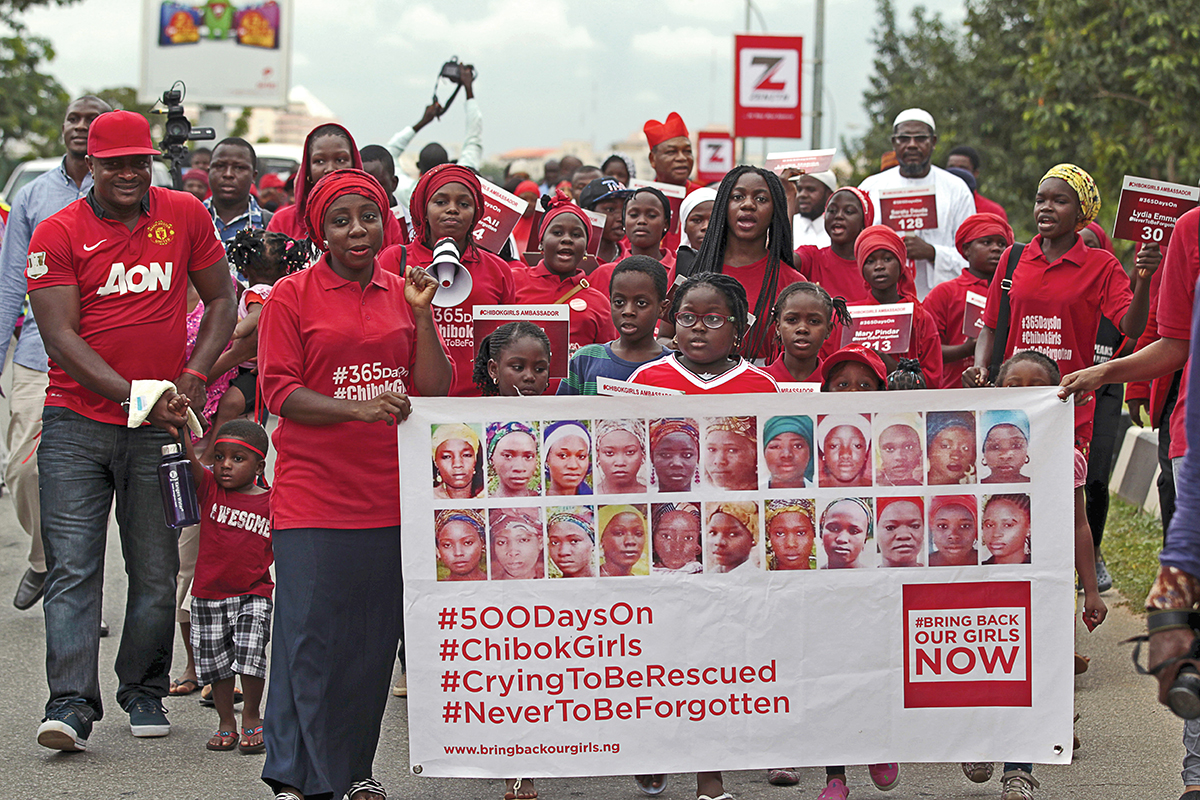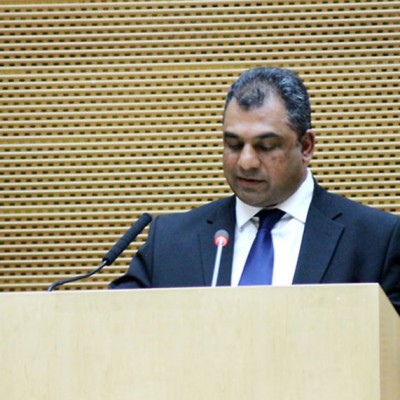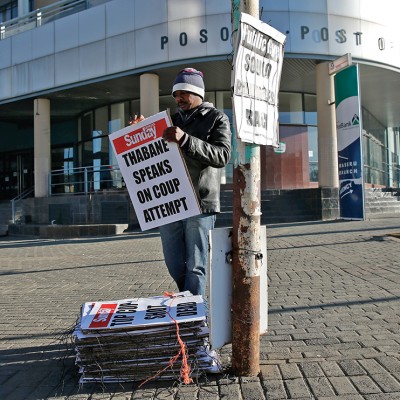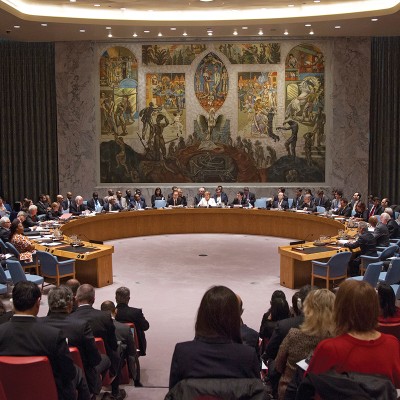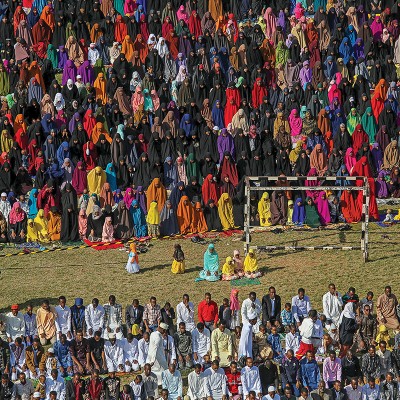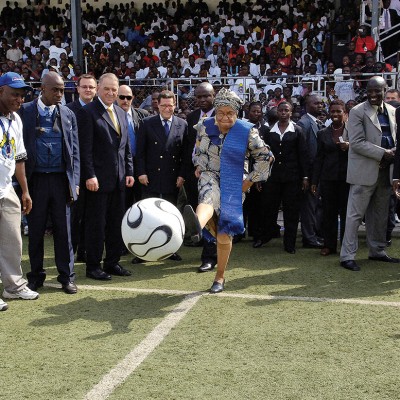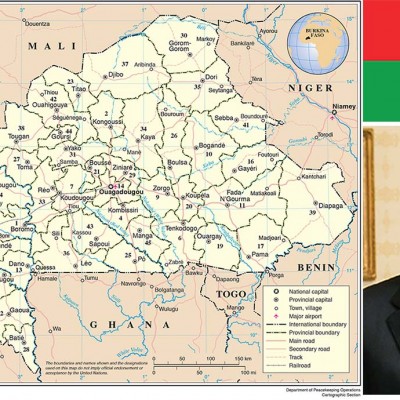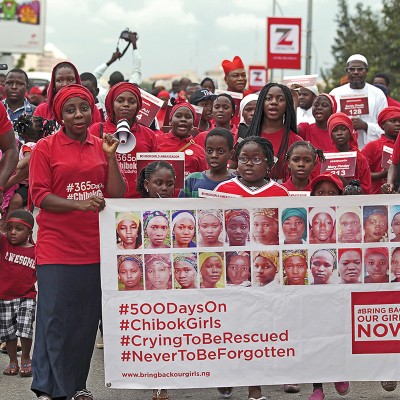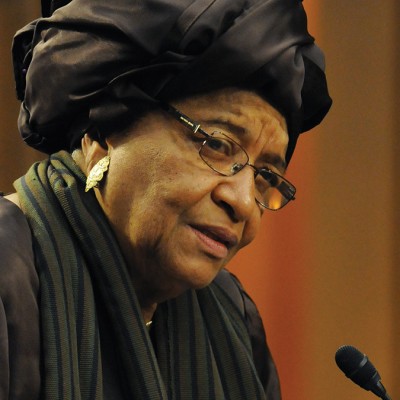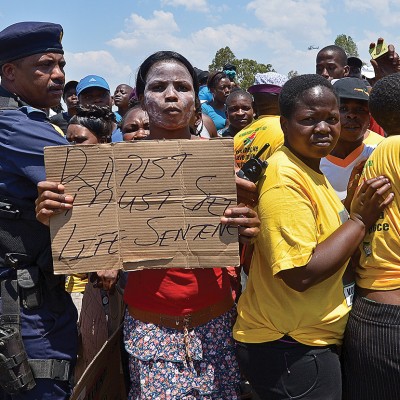Introduction
The Preamble to the United Nations Organization for Education, Science and Culture (UNESCO) Constitution states, “Since wars begin in the minds of men, it is in the minds of men that the defences of peace must be constructed.”1 Undoubtedly, the Boko Haram insurgency is a war that begins in the minds; therefore, to address this quandary, conflict transformation approaches and peace initiatives must target the thinking of people and communities in northern Nigeria. This article uses Boko Haram as a case study to uncover the remote and immediate causes of extremism in Nigeria. Furthermore, this article proffers that, to overcome the wave of extremism and to achieve sustainable peace in the region, there is an urgent need for peace education, and for building cultures that foster peace and non-violence.
The Underlying Factors of Extremism in Nigeria
To comprehend the most repugnant violence unleashed by a non-state actor in Nigeria’s post-independence era, it is pertinent first to understand the motive of this group; second, to scrutinise the layers of the insurgency; and third, to investigate the dynamics that fuel the violence.
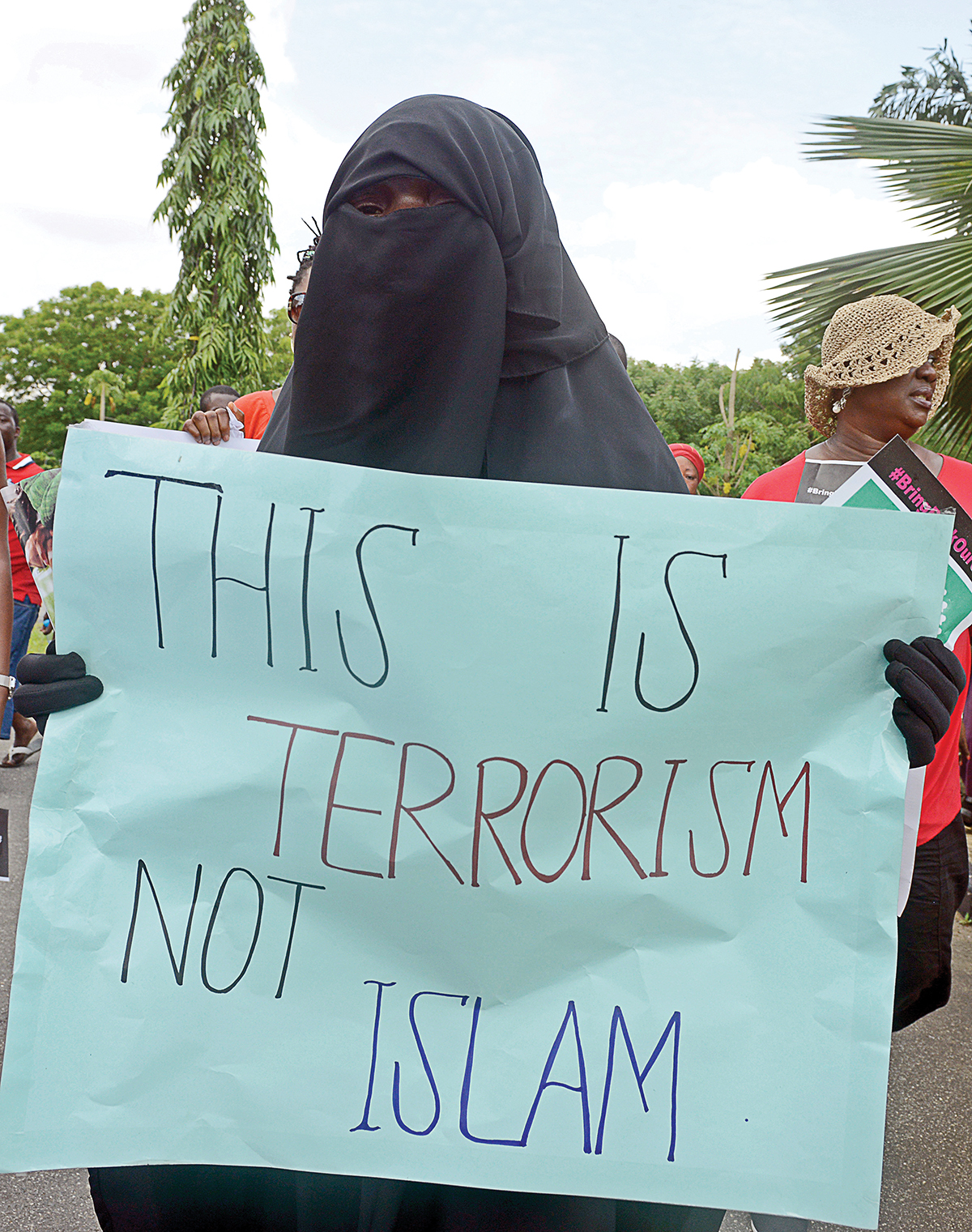
These are requisites for finding ways to positively transform the fundamentalist mindsets and radical behaviours that ignite extremism in Nigeria. The following excerpt provides insight into why violent conflict exists, and explains how armed conflicts erupt in Nigerian communities:
Conflict is as a result of frustration when ‘legitimate desires’ of a person or group is denied them either directly or indirectly as a result of the way the society is structured. The feeling of disappointment may lead such a man or group to express anger through violence that will be directed at those held responsible. This anger and violence can also be directed to people who are directly or indirectly related to those people that are said to be responsible.2
A critical point of observation emanating from this statement that is worth reflecting upon is: what are ‘legitimate desires’, and how can they be justified in societies with divergent moral, ethical, social, cultural, religious and political orientations? In addition, if personal and group legitimate desires are justified, what happens when they contradict the legitimate desires of other persons or groups? These challenging questions encircle the quandary of Boko Haram.
Etymologically, Boko Haram is derived from the Hausa and Arabic languages. In Hausa, ‘Boko‘ literarily means book, but figuratively is translated as learning or education. In Arabic, ‘Haram‘ is translated as forbidden, sin or unlawful.3 In the context of this extremist group, Boko Haram stands for ‘Western education is forbidden’. Emic studies reveal that this group prefers to be called ‘Jama ‘atu Ahlis Sunna awati wal-jihad’. This means ‘People Committed to the Propagation of the Prophet’s Teachings and Jihad’ or ‘Association of Sunnas for the Propagation of Islam and for the Holy War’.4
It is important to note that etymologically, ‘Boko‘ stands for learning or education – not Western education. Ancient Hausa civilization did not forbid Western education, since Hausa people had little or no encounters with so-called Western education. Hausa culture was infiltrated as a result of imperialism, colonialism and globalisation. Equally important, the advent of Islam in present-day northern Nigeria, northern Cameroon, Chad and Niger (the areas affected by Boko Haram) occurred with the arrival of the Arabs, and the expansion of Islam in sub-Saharan Africa from the 10th century onwards.5
Western education, according to Boko Haram, is a value system that differs from its own interpretation of Islam, which is coined from selected verses in the Koran. In view of this, Boko Haram is equally against traditional African practices, and also forbids Oriental, Shamanist and Hindu-based approaches. Therefore, in this discourse, ‘Western’ stands for any world view that is inconsistent with the Boko Haram ideology. On the one hand, the leaders, members and supporters of Boko Haram reject a secular state. They aspire to impose their own interpretation of sharia6 principles and Islamic practices in Nigeria; for them, this is a legitimate desire. On the other hand, their ideology violates the intrinsic rights and legitimate desires of the larger population of Nigerians who have juxtaposed ideological, religious and political orientations.
The Boko Haram ideology may be built on aspects of the Koran, but numerous Islamic leaders and scholars have publicly chastised this group on the basis of other Koranic teachings. That is to say, Boko Haram is a sectarian organisation, because its ideology does not represent the views of many Muslims in Nigeria and in the world at large. Ironically, the leaders and doctrine propagators of Boko Haram claim to forbid all forms of Westernisation, but they contradict this declaration by using Western-made weapons, by wearing foreign-made fabric and clothing, and by utilising Western technologies such as automobiles, computers, Internet and mobile phones, as well as Western social media innovations such as Facebook and Twitter. Hence, the paradoxical nature of this group brings into question if Westernisation is actually the problem.
Pre-existing Culture of Violence
Before the emergence of Boko Haram in 2002 and the escalation of inhumane violence in 2009, the northern part of Nigeria had experienced a couple of fundamentalist movements, such as the Maitatsine uprisings. However, historians and scholars observe that Boko Haram is the most extreme of all these crusades, and the pattern of insurgency associated with this group hitherto was unimaginable in Nigeria.7 Arguably, this may be a reason why, from inception, local, national and regional stakeholders underestimated the threats posed by Boko Haram.
According to Magari Hill, the arrival of Islam in West Africa occurred in the eighth century. Initially, traditional kings contained Islamic teachings, and Muslim converts were segregated. At a later stage, the kings allowed Muslim integration and Islam was blended with local traditions. In the 19th century, Islamic intellectuals – led by Uthman Dan Fodio, the founder of the Sokoto Caliphate – revolted against the adulteration of their religion. They motivated peasants to overthrow the traditional kings, and Muslims then became rulers and landowners. Following this, Islamic values and sharia law as interpreted by Dan Fodio became a norm in northern Nigeria.8
Historically, the Dan Fodio-led revolution was the first successful jihad in sub-Saharan Africa. During the colonial era, British administrators allowed sharia practices in the north. However, these were officially suspended by military regimes in the 1990s. In spite of this, sharia was practised unofficially in many northern communities. Even though sharia laws are inconsistent with the Constitution of the Federal Republic of Nigeria, in 2002, Olusegun Obasanjo, a democratically elected president, reinstituted sharia law in the north.
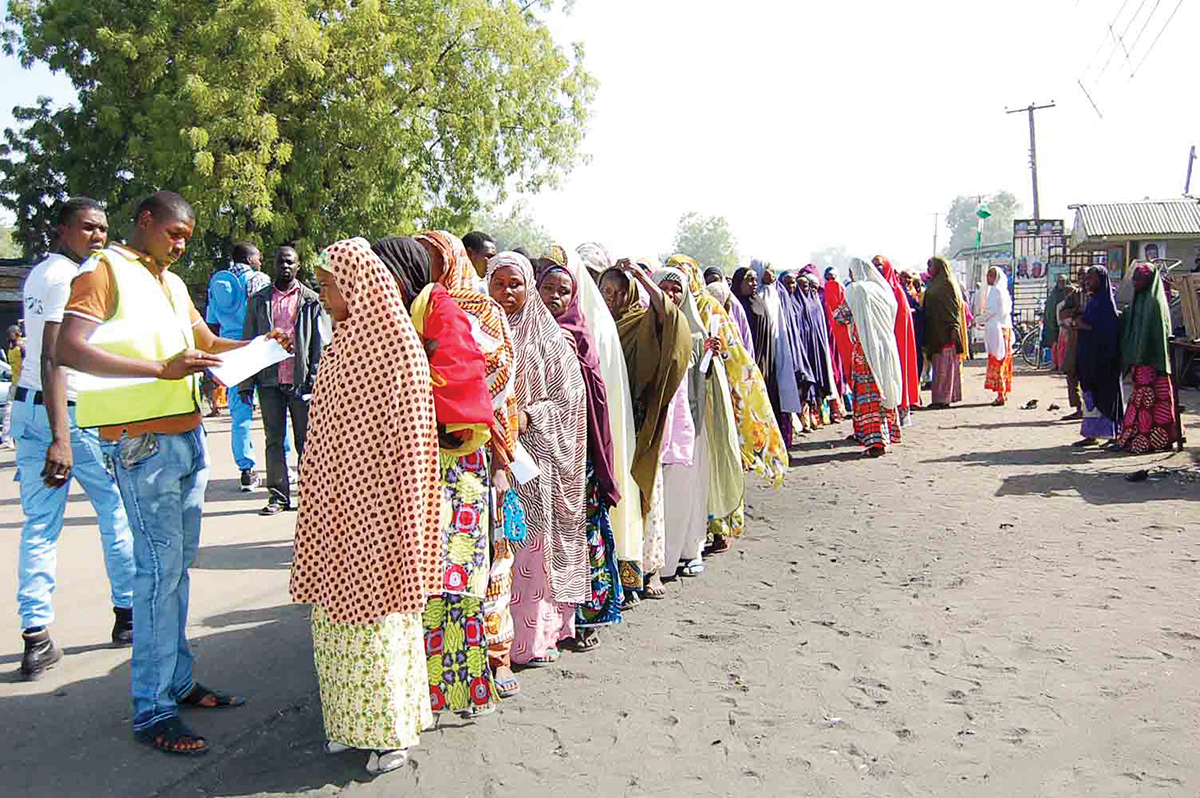
As previously mentioned, Boko Haram began its so-called jihadi war in 2002. This group capitalised on the legalisation of sharia law by the federal government to propagate its ideology and to commit atrocious extrajudicial activities. For example, without judicial proceedings or consultations with sharia institutions, Boko Haram publicly flogged and stoned people whom they themselves accused of violating moral, religious and legal norms. Many inhabitants in northern Nigeria cheered and praised them for instilling societal justice and social order. The relevance of this historical exposition is to shed light on how Boko Haram, as an ideology and group, gained popularity, power and control in the north-east region of Nigeria.
For many Nigerians, the extreme violence perpetrated by Boko Haram may be unpredicted or surprising; however, research reveals that extremism exists because of cultures that both intentionally and unintentionally promote violence. Nigerian history presents Dan Fodio –a violent jihadist and a promoter of holy war – as a legend. He is eulogised in popular folklores and proverbs; many children in northern Nigeria grow up chanting his praises, and youth are taught how Dan Fodio established an ‘ideal-type’ society.
In academia, influential institutions are named after Dan Fodio, and schools of thought are modelled after his writings and teachings. In addition, prominent religious and political leaders in the north publicly preach and advocate his radical views. Suffice to say, for centuries, history, philosophy, literature, religion and folklore rationalised such violence and constructed the mindsets responsible for extremism. It is important to note that the Dan Fodio revolution, the Maitatsine uprisings and the Boko Haram conflict are built on similar ideologies.
The Contemporary Blame Game
Since 2009, Boko Haram has become the most researched conflict in West Africa. Intellectuals in peace, security and conflict studies have engaged in this discourse, and several debates and theories have emerged from this interest. While some scholars link Boko Haram with the new wave of transnational terrorism, others connect the insurgency with the internal political power struggle in Nigeria. The most controversial theory connects the conflict with socio-economic concerns such as poverty, unemployment and inadequate education.
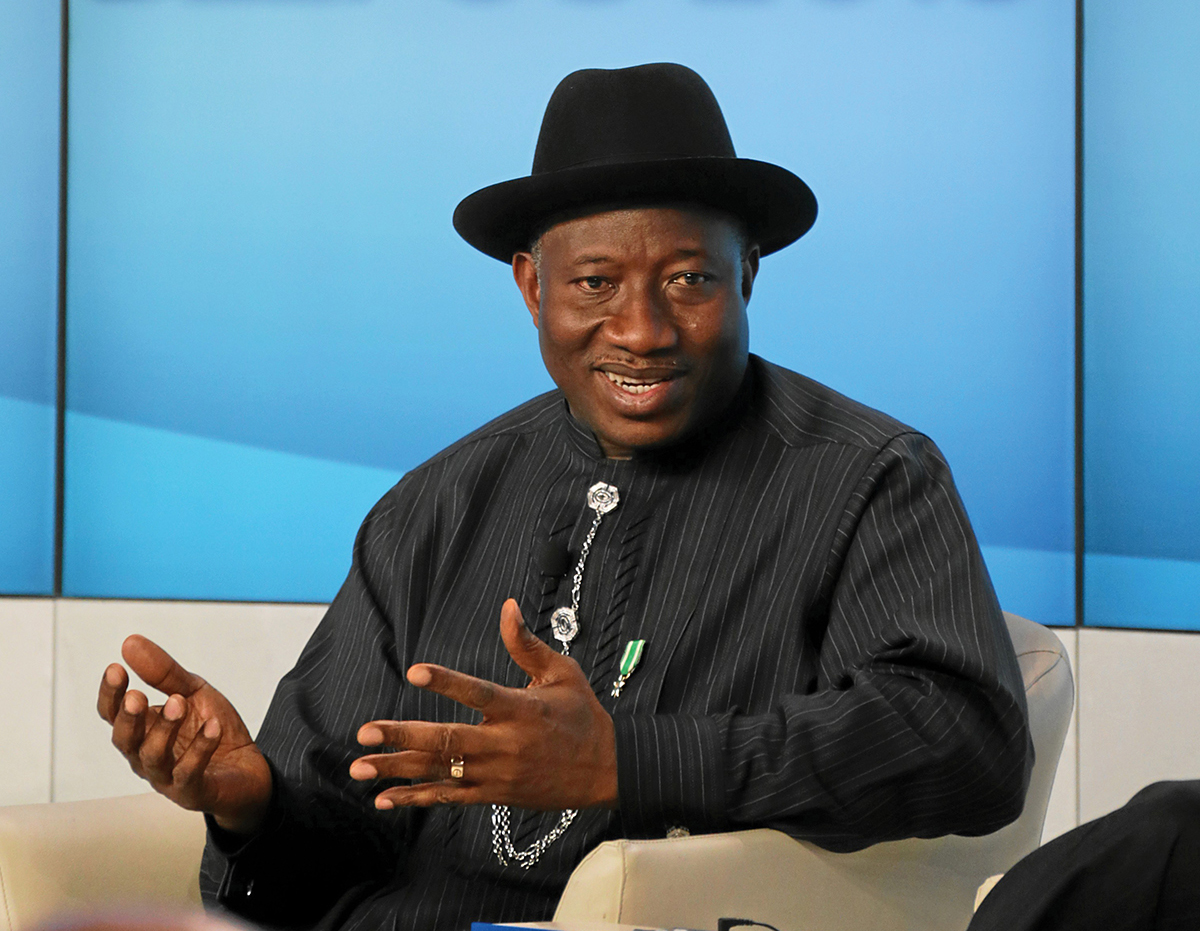
The authors that correlate Boko Haram with the dynamics of power struggle remind that, in the early 19th century, the Islamic conquest dethroned traditional leadership structures in northern Nigeria. Afterwards, in the early 20th century, the British colonial empire suppressed the Islamic order. After Nigeria gained independence in 1960, the northern elites, who were Muslims, had full control over the region. Since then, northern Nigeria has always resisted ‘Western’ ways of doing things.9 This reveals how the drive for power and control created a generational culture of “political anxiety” – the “fear of the consequences of not being in control of the government, associated with a distrust of political opponents”.10
Contemporary theorists iterate the problem of power struggles in Nigeria. They argue that Boko Haram is a politically incited conflict, because the contentious entry of this group into the geopolitical scenery was after the death of President Umar Musa Yar’ Adua – a Muslim who hailed from the north. In accordance with the Constitution, the vice president, Goodluck Jonathan – a Christian from the south – then assumed the presidency. Therefore, tensions arising from this abrupt political power shift from Muslim-north to Christian-south actually triggered the Boko Haram conflict.11
The power shift proponents explain that Boko Haram operated on a low scale within local Islamic communities. The violence escalated after the 2011 election results were announced, when Jonathan was re-elected as president. At this point, the group started targeting non-Muslims and residents from the southern parts of Nigeria living in the north.12 Boko Haram escalated, deploying lethal weapon and bombs in attacks – the kind of violence currently known as terrorism. It began large-scale hostility in public spaces such as market places, mass transit stations and educational institutions, because a non-Muslim and non-northerner became president. In line with this notion, the leader of Boko Haram publicly declared that they refused to be governed by infidels.13 This validates the argument that Boko Haram is a politically motivated conflict under the guise of a religious war.
On several occasions (through social media posts and online videos), Abubakar Shekau, the leader of Boko Haram, has publicly acknowledged the aforementioned ethnopolitical allegations. It is important to note that the argument that Boko Haram intensified its hostility because a non-Muslim became president of Nigeria is based on circumstantial occurrences. Nevertheless, since Nigeria gained independence, the challenges of a Christian-Muslim dichotomy and the north-south regional divide remain the foundation of conflicts and political power struggles. But what remains unknown is, would the extremism in northern Nigeria have escalated into an armed conflict had a northerner and Muslim continued to be president? It is for this same reason that many have questioned why Boko Haram continues to unleash violence, in spite of the fact that a Muslim from the north is currently the president of Nigeria. This may point to a need to view the Boko Haram situation beyond internal religious dichotomy and regional political divides.
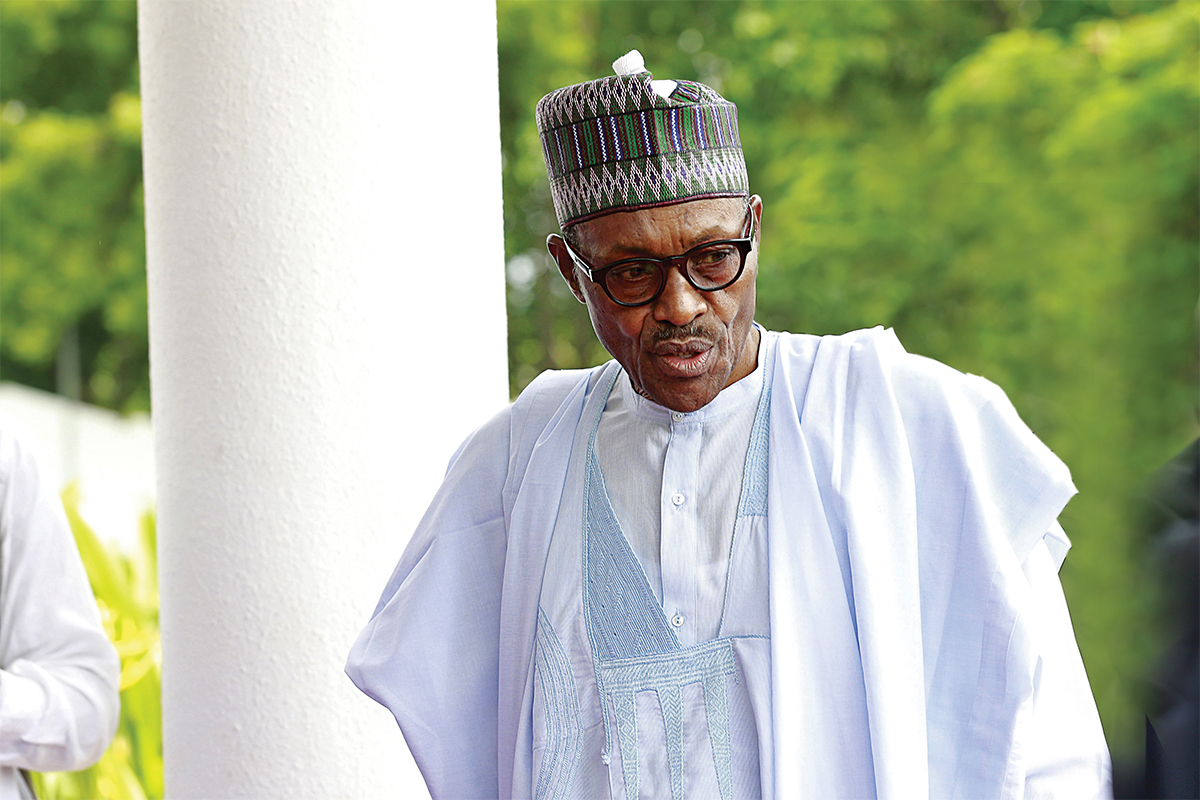
Not only do several scholars echo the power struggle theory, but among Nigerians it happens to be the popular belief regarding the conflict. Despite this, a large number of researchers present other perspectives on the Boko Haram threat. The most amplified and controversial notion connects the conflict with socio-economic hardship. A host of scholars raise the argument that factors such as abject poverty, formal education deficiency, a poorly funded healthcare system and gross unemployment precipitated the Boko Haram conflict. They also suggest that uneven wealth distribution, corruption among the elite and the failure of government to provide basic necessities created feelings of alienation, frustration and abandonment that drove people into violent extremism.14
Simeon Alozieuwa explains the rationale behind this argument, which he refers to as “the socio-economic perspective of the Boko Haram challenge in Nigeria”:
The perspective which blames social conditions for the violence is anchored on the human needs theory of social conflicts. Its central thesis is that all humans have basic needs, which they seek to fulfill, and failure caused by other individuals or groups to meet these needs could lead to conflict.15
The socio-economic theorists suggest that the Boko Haram conflict is borne out of the failures of the government to improve the quality of and access to education. But the critical question here is: how can education deficiency be the problem when, in the actual sense, education and human development are what Boko Haram claims to be fighting against? To substantiate, the infamous kidnapping of more than 300 secondary schoolgirls in the Chibok community, and the incessant devastating attacks on numerous educational institutions in northern Nigeria, contradict the socio-economic perspective on the conflict.
Other intellectuals oppose this socio-economic rationale of conflict, raising the notion that poverty, education deficiency and unemployment are nationwide problems. If socio-economic deprivations are responsible for violent extremism, why have terror-minded groups like Boko Haram not emerged in other geopolitical zones in Nigeria?16 It is also for this reason that Fineface Ogoloma argues that scholars and stakeholders need to understand that:
Appeasing such a group is difficult in theory and impossible in practice. If a group has openly declared that it has no other agenda than working to establish an Islamic kingdom. Why do people continue to cite poverty, unemployment and illiteracy as its main motivation? … The problem is really how to free the innocent from the terror.17
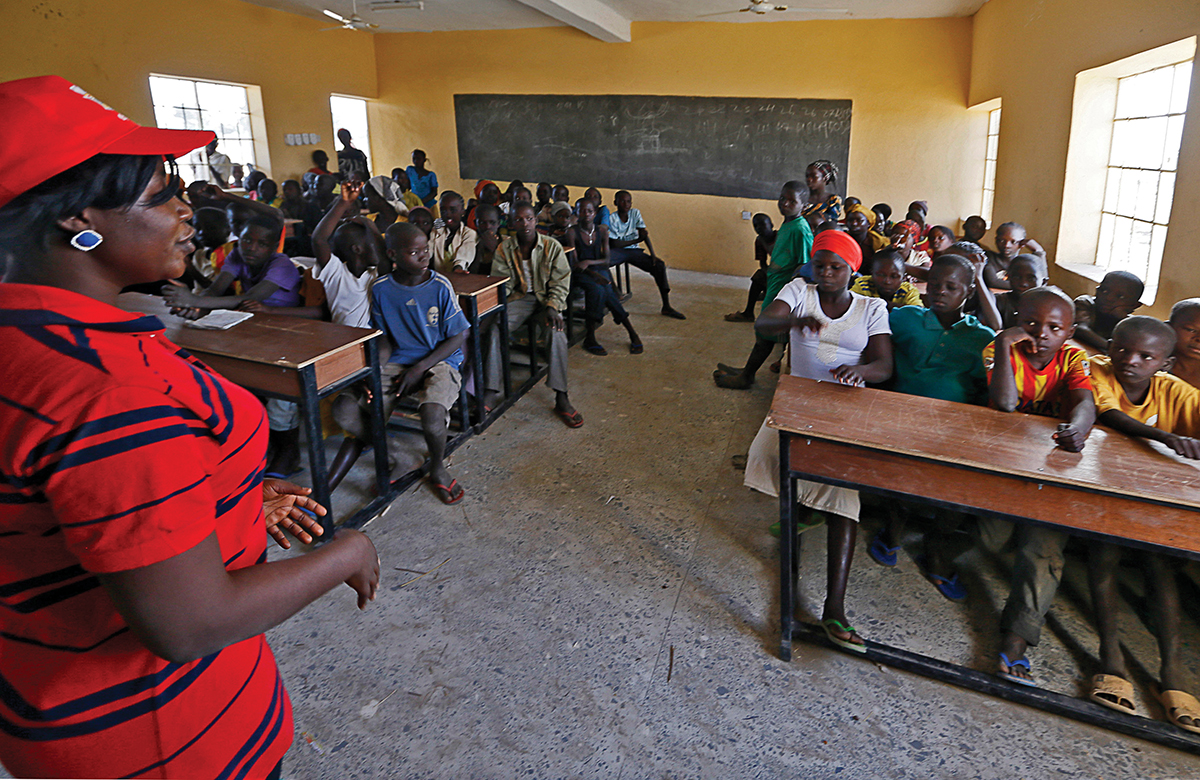
To build on this point, the leaders and advocates of Boko Haram have never expressed concerns about the level of unemployment, literacy and poverty in the north-eastern part of Nigeria. Instead, their violent actions are channelled against the upgrade of human development and socio-economic conditions. This is why the priority in this conflict is really about how to protect the vulnerable from the ideological rivalry between democratisation and ‘Boko-Haramism’.
A critical area of analysis concerning this discourse that is yet to gain scholarly and political attention is what can be called the ideological rivalry between democracy and Boko-Haramism. To elucidate, the Boko Haram aggression against the Nigerian state is largely out of frustration with the changing dynamic in the generational social order, perpetrating structural and cultural violence. From time immemorial, patriarchal norms in northern Nigeria have facilitated a cycle of violence against women and children (especially girl children) through practices such as coerced girl-child marriages, obstructing girls’ access to immunisation and formal education, imposed female genital mutilation and other inequitable gender practices. Contemporary history also shows an intense violence against religious and ethnic minorities in several parts of the north.
Even though sharia laws are official in northern Nigeria, the federal government has been making reforms, in line with democratic principles, to repeal these violent and repugnant practices against minority and vulnerable groups in the northern part of the country. The interrelation between these democratic transformative processes and the Boko Haram conflict is that the beneficiaries of structural and cultural violence in north-eastern Nigeria do not want their patriarchal privileges taken away. Likewise, others who consider themselves custodians of tradition feel the need – or the obligation – for cultural preservation. That is to say, the Boko Haram conflict is also a rebellion against new systems aimed at repealing normative cultural and structural violence.
Conclusion
Inasmuch as several theories and arguments have emerged from the Boko Haram discourse, the perspective and modus operandi of this group demonstrates that this conflict revolves around the fear of losing political power and control if democratic principles become the new norm. Simply put, the so-called jihadi war is an ideological power struggle. This is a reason why the agenda of Boko Haram is not only to establish an Islamic kingdom, but also to dominate and forbid opposing world views. As a result of democratic advancement, and with ongoing robust military action against Boko Haram, the agenda of installing a sharia kingdom in Nigeria seems far-fetched.
The immediate goal of the Nigerian government and the intergovernmental alliance – the military of Chad, Cameroon and Niger – is to win the war against Boko Haram through militarisation, but the major challenge lies ahead. Military intervention may suppress the direct violence to the barest minimum, but not the extremist mindset. Given the volatile nature and history of conflicts in Nigeria, and considering the transnational resonance between Boko Haram and extremist-minded groups such as Islamic State of Iraq and the Levant, Al-Shabaab and Al-Qaeda, the major challenge is really how to transform the reoccurring patterns of extremism in Nigeria. Considering these influences, there is a need to transform the cultures that breed fundamentalist mindsets and structures that rationalise extremism and violence. This can be achieved through building ‘cultures of peace’:
A ‘culture of peace’ is defined as “a set of values, attitudes, traditions and modes of behaviour and ways of life based on respect for life, ending of violence and promotion and practice of nonviolence through education, dialogue and cooperation”.18 Peace and conflict practitioners argue that violence and war are learned behaviours; therefore, non-violence and peaceful behaviour can be learned through education and socialisation. Cultures of peace can gradually be instilled if families, social groups, faith-based organisations and educational institutions engage in peace-oriented awareness, education and enlightenment. In so doing, the mindsets and attitudes that promote extremist groups such as Boko Haram can gradually be overcome.
Building cultures of peace is a necessity for children, youth and adults. However, priority should be given to (re)framing the mindsets of adults to embrace peace cultures. This is because families and socio-communal units are the first point of learning for children. To have sustainable peace in Nigeria, parents, guardians and teachers need to understand the relevance of respect for life, the need to jettison violence and the obligation to promote a lifestyle of peace and non-violence through education, dialogue and cooperation. Furthermore, there is a need to review the curriculum and content in both the formal and informal educational systems in northern Nigeria, because the channels through which learning takes place are very important in building cultures of peace and non-violence. This means that peace should be seen as more than the end of armed conflict – peace should be understood as a way of life.19
Endnotes
- United Nations Educational, Scientific and Cultural Organization (2002) ‘Manual of the General Conference’, Available at: <http://unesdoc.unesco.org/images/0012/001255/125590e.pdf> [Accessed 10 July 2015].
- Ogoloma, Fineface (2013) Niger Delta Militants and the Boko Haram: A Comparative Appraisal. International Journal of Arts and Humanities, 2 (1), pp. 114–131.
- Okoro, Efehi (2014) Terrorism and Governance Crisis: The Boko Haram Experience in Nigeria. African Journal on Conflict Resolution, 14 (2), pp. 103–129; and Bamidele, Olawaseun (2013) Nigeria’s Terrorist Threat: Present Context and the Future of Sub-Saharan Africa. International Journal on World Peace, 30 (4), pp. 7–30.
- Sani, Shehu (2011) Boko Haram: History, Ideas and Revolt. Journal of the Centre for Constitutionalism and Demilitarization, 11 (4); and Okoro, Efehi (2014) op. cit.
- Sarr, Amadou Lamine (2011) African Salaam. In Peace Studies: a Cultural Perspective. Chippenham and Eastbourne: Palgrave Macmillan, pp. 442–462.
- Sharia is a traditional Islamic law derived from the Koran and the teachings of Prophet Mohammad. It is believed to be a divine command from Allah.
- Agbiboa, Daniel (2013) (Sp)oiling Domestic Terrorism? Boko Haram and State Response. Peace Review: A Journal of Social Justice, 25, pp. 431–438; and Okoro, Efehi (2014) op. cit.
- Hill, Magari (2009) ‘The Spread of Islam in West Africa: Containment, Mixing, and Reform from the Eighth to the Twentieth Century’, Available at: <http://spice.fsi.stanford.edu/sites/default/files/Islam.pdf> [Accessed 12 July 2015].
- Agbiboa, Daniel (2013) op. cit.; and Marchal, Roland (2012) ‘Boko Haram and the Resilience of Militant Islam in Northern Nigeria’, Available at: <http://www.peacebuilding.no/var/ezflow_site/storage/original/application/dc58a110fb362470133354efb8fee228.pdf> [Accessed 12 July 2015].
- Ake, Claude (1973) Explaining Political Instability in New States. The Journal of Modern African Studies, 11 (3), pp. 347–359.
- Alozieuwa, Simeon (2012) Contending Theories on Nigeria’s Security Challenge in the Era of Boko Haram Insurgency. Peace & Conflict Review, 7 (1), pp. 1–8; Ogoloma, Fineface (2013) op. cit.; and Okoro, Efehi (2014) op. cit.
- Ogoloma, F. (2012) Secularism in Nigeria: An Assessment. International Journal of Arts and Humanities, 1 (3), pp. 63–74.
- See Ogoloma, Fineface (2013) op. cit.; Onuoha, Freedom (2013) Understanding Boko Haram’s Attacks on Telecommunication Infrastructure. In Boko Haram: Anatomy of a Crisis. E-International Relations Edited Collections, Bristol, pp. 16–28.
- Maiangwa, Okeke and Whetho, Onapajo (2012) Baptism by Fire: Boko Haram and the Reign of Terror in Nigeria. Africa Today, 59 (2), pp. 41–57; and Alozieuwa, Simeon (2012) op. cit.
- Ibid.
- Alozieuwa, Simeon (2012) op. cit.; and Ogoloma, Fineface (2013) op. cit.
- Ibid.
- United Nations General Assembly (1999) ‘Declaration and Programme of Action on a Culture of Peace. Resolution A/53/243, Fifty-third session, Agenda item 3’, Available at: <http://www3.unesco.org/iycp/kits/uk_res_243.pdf> [Accessed 19 July 2015].
- United Nations Educational, Scientific and Cultural Organisation Congress (1989) Yamoussoukro Declaration on Peace in the Minds of Men. Medicine and War, 6 (1), pp. 73–75.

